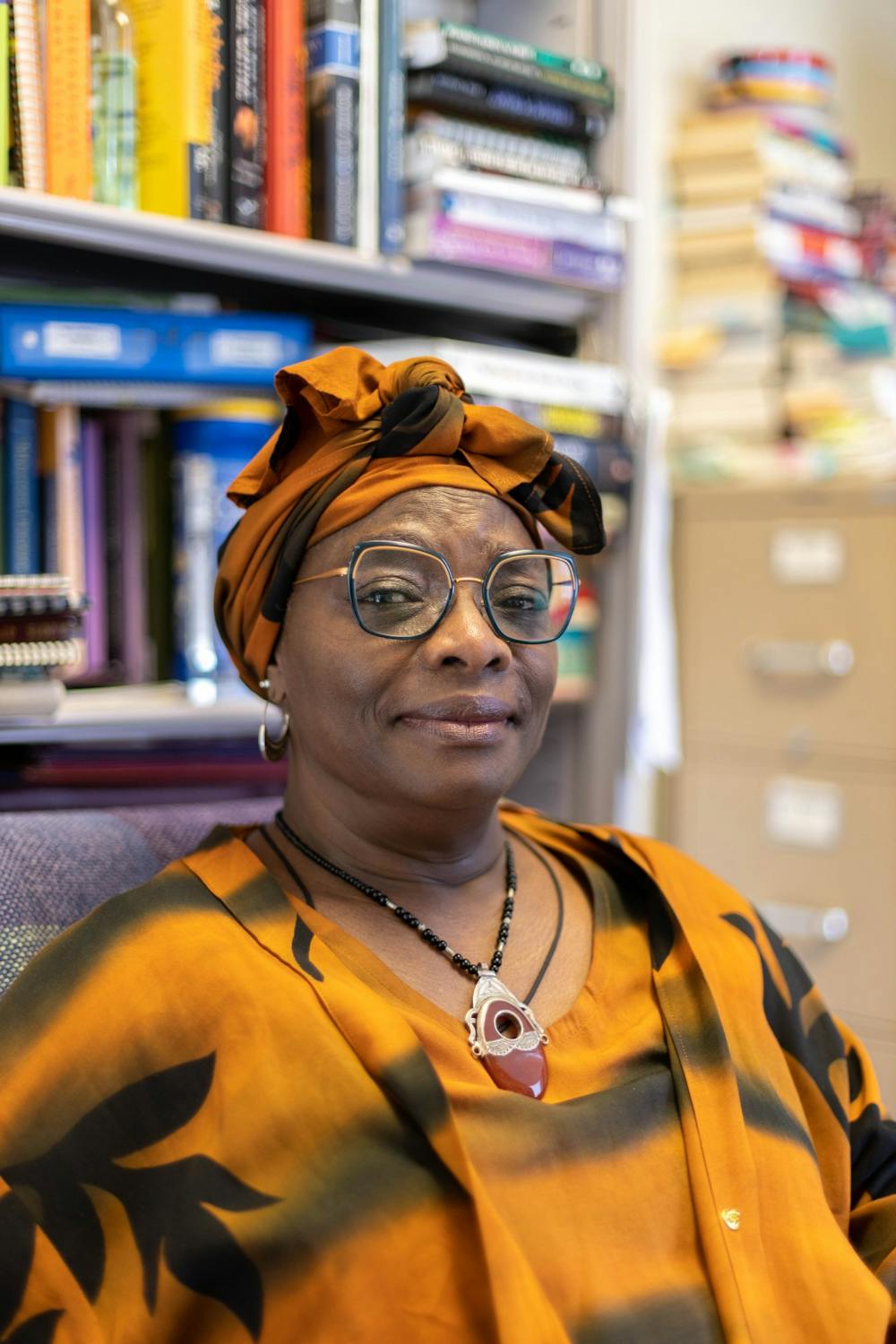Maureen Eke receives Distinguished Woman in Higher Education award
How experiencing genocide influenced a professor's advocacy

From the nutrition center for kids where Maureen Eke helped during Nigerian Civil War to human rights activism in the United States, Eke made a long journey.
She is now a professor in the department of English at Central Michigan University. On her path, she always knew she wanted to help people.
For her achievements, leadership and resilience, Eke was announced to be awarded the Distinguished Woman in Higher Education Leadership Award from the Michigan American Council on Education (ACE) Network. The honors will be presented at the Michigan ACE Network conference June 13.
Eke said this award is an honor for her.
“I do a lot of human rights work, I do a lot of research, I do all those things,” Eke said. “This award for me is really an affirmation that the things I do actually matter. These things matter to people, and they have impact on people’s lives … and they have significance.”
What is this award?
The Michigan ACE Network's annual Distinguished Woman in Higher Education Leadership Award was established in 2000.
It honors “achievements of women who break barriers and establish leadership models for women professionals at all levels within higher education and within their communities,” according to the Michigan ACE Network press release dated April 19.
This year four women received the award: Barbara Patrick, Eastern Michigan University; Tara McCrackin, Ferris State University; Michele Kelly, Schoolcraft College; and Eke.
Eke was awarded in the category of human rights for her “efforts on behalf of the human need for community, connection and belonging,” reads the press release.
Why do human rights matter to Eke?
The way to Eke’s advocacy on human rights started in her home country, Nigeria, when she was a little girl.
She witnessed ahe genocide of her people committed by the Nigerian government.
Between 1967 and 1970, over a million people were killed as a result of Nigerian government committing multiple massacres of Igbo people, the ethnic majority of Eastern Nigeria who wanted to live in their own state, Biafra, according to BBC. The genocide is not recognized by the Nigerian government.
“We were involved in a war where we (were) being bombed,” Eke said.
Because of the active bombing, Eke couldn’t go to school. Children at that time lost two years of schools, she said.
“Many of (the people) were killed,” Eke said. “Women were massacred. Pregnant women were killed … and their children taken out. … They were also massacred because they belonged to one ethnic group.”
Eke had to be running all the time, watching out for people and protecting her siblings and cousins, she said.
One of the first fights for human rights Eke started was volunteering in the nutrition center for kids.
“Nigerian government used food as a weapon of war,” she said, explaining the implementation of a food embargo. “People couldn’t get food, children were starving.”
The Red Cross was delivering food to certain places and centers where Eke, as a teenager, would walk at 5 a.m. to help serve food.
“You survive and you learn how to take care of one another because … the survival of that community is also your responsibility,” Eke said.
Now she serves as a chair of the Isabella County Human Rights Committee, does human rights research and participates in international conferences and presentations where she speaks on human rights.
“Because all of these things have in a way influenced my life … I worry about human rights,” Eke said.
How do human rights relate to literature?
Human rights advocacy and literature overlaps because literature talks about the rights of individuals and communities, Eke said.
During her courses Eke discusses stories that represent the world, our identities and understanding of us as human beings. For example, she links stories related to enslaved people and survivors in literature to the human righst activism.
However, today we see more and more banning of books. Eke said the fear of people who ban stories about slavery only shows the importance of those stories being told and the power of them.
“Books that have been banned (are from) authors of color, LGBTQ+ authors, women authors,” Eke said. “(Those are) books about racism, slavery … books about diversity and inclusion, books about sexual identity, books about groups that are underrepresented.”
Eke said between July 2021 and June 2022, 2,532 books have been banned across the United States. Twenty-two percent were books about sexual orientation, 21% had titles that dealt with racism, 10% dealt with human rights, 9% were autobiographies and 4% were religious books, she said.
“All these people who are obsessed with burning books … why would you want to burn any book for that matter?” Eke said. “Because you do that, it means that you’re trying to stop people from gaining a certain type of knowledge that you don’t think is OK.
But you don’t have the right to determine what kind of knowledge anybody should have.”
Banning books is violating human rights in a way, too, Eke said.
To learn more about Eke’s courses at CMU, visit the cmich.edu website.







